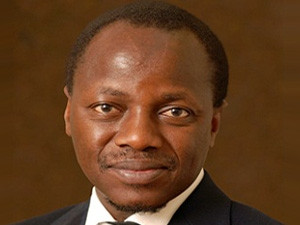
This year has been a mixture of lingering concerns as well as change at the Department of Public Service and Administration (DPSA), due largely to a change in tack regarding the department's IT governance objectives.
Following the general elections in May, Collins Chabane replaced Lindiwe Sisulu at the helm of the DPSA and inherited a legacy of challenges, including overseeing a floundering State IT Agency (SITA) as well as the much-delayed appointment of a permanent government CIO.
However, shortly after Chabane's tenure began, SITA was shifted to fall under the stewardship of the newly-formed Department of Telecommunications and Postal Services (DTPS). That aspect of government's ICT management shake-up makes sense to analysts, who note the agency is better placed within DTPS.
Mark Walker, regional director for sub-Saharan Africa at the International Data Corporation, says although SITA's internal challenges remain, the move to a more technology-focused department could help it exercise its mandate more effectively. "Under the DTPS, the tech ambit or scope is much wider, but we'll have to wait and see whether or not the agency is driven strongly moving forward.
"SITA has, for years, been lambasted by all and sundry - and for good reason. The constant leadership changes didn't help it cement its strategic direction, but hopefully that will change," he adds.
No permanent CIO
Another factor which has remained unchanged is the delayed appointment of a permanent CIO. Since the departure of Michelle Williams in April 2011, the department has had two people performing the role in an acting capacity, with Ntjatji Gosebo currently filling the post on a temporary basis.
Independent analyst Spiwe Chireka notes a permanent appointment will be vital to ensure a sound execution of government's technology strategy between departments. She says the CIO's role and mandate must be clarified to avoid falling into the pitfall of possible confusion created by SITA's move to another department. "We saw similar issues with Independent Communications Authority of SA falling under the new Department of Communications, while most of its work was linked to the DTPS."
Walker adds, to help drive strategy, government could look to strengthening governance of CIOs at departmental level with the main CIO overseeing strategic co-ordination.
IT governance concerns
The DPSA's mandate includes security management across public entities, but this has been a point of concern over the past year. According to the auditor-general's latest report on national audit outcomes, most government departments are still hampered by a lack of adequately designed security policies and procedures, while others have not succeeded in implementing them successfully.
"While 30% of the auditees have IT controls that are embedded and functioning effectively, 38% of the auditees continue to experience challenges with design, and 32% with the implementation of security management policies," the report states.
In order to boost IT governance, the DPSA developed a framework and guidelines for implementation in phases over a period of three years, according to the report. The first phase was due for implementation by the end of the 2013/14 financial year, but - with the exception of the Western Cape - was not completed by the end of March.
On the go
In a bid to speed up the resolution of disciplinary cases, that are either under way or have stalled, the department set up a central digitised database from across provinces and departments. Future cases in all spheres of government will be registered and stored so their lifecycle can be monitored.
The department wants the centralised data management to improve efficiency in handling cases across public entities.
Earlier in the year, it also launched the e-disclosure system alongside SITA, requiring all senior managers in the public service to disclose their financial interests. The move was part of government's integrity programme to entrench the principle of clean government.
Share